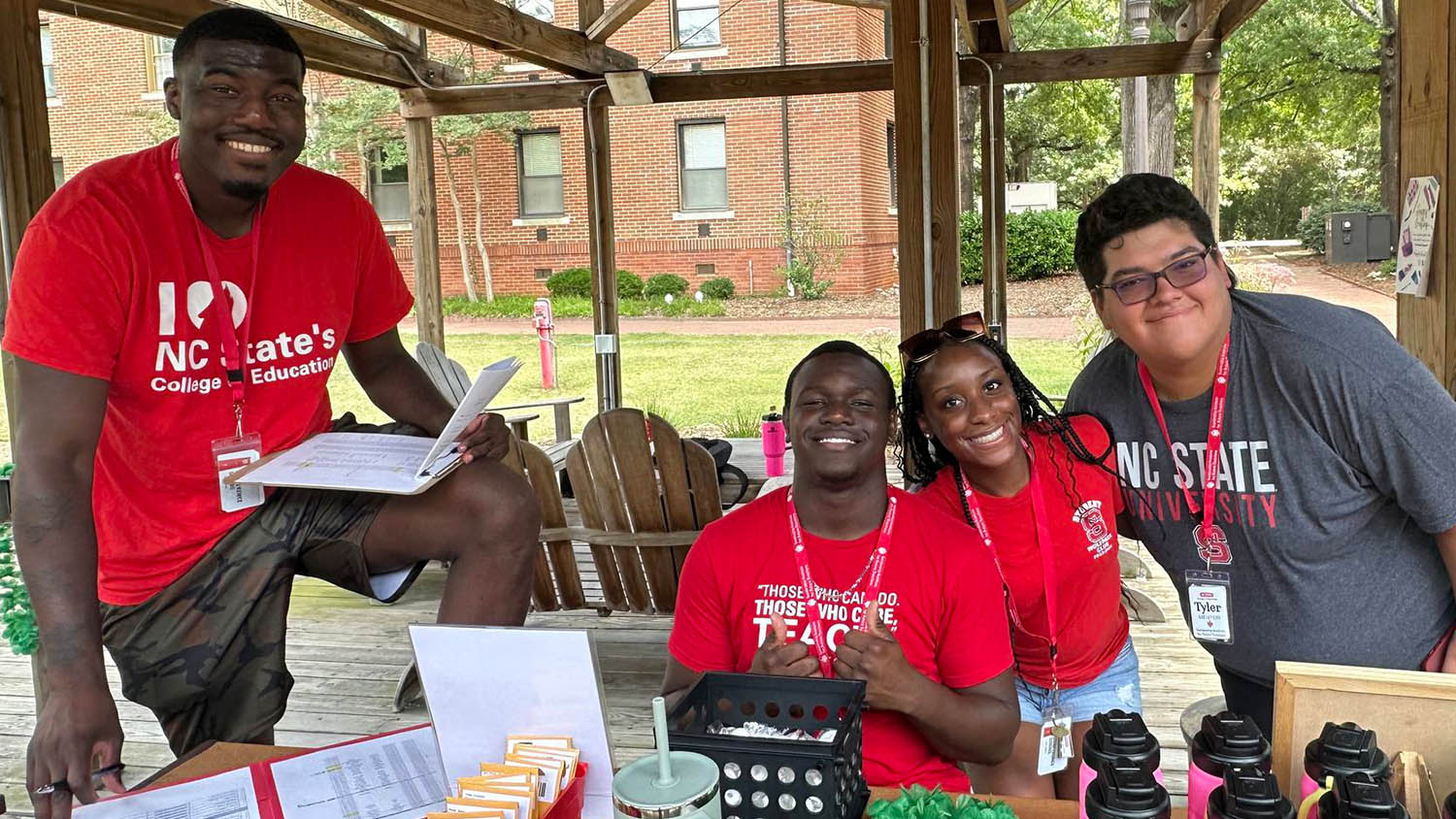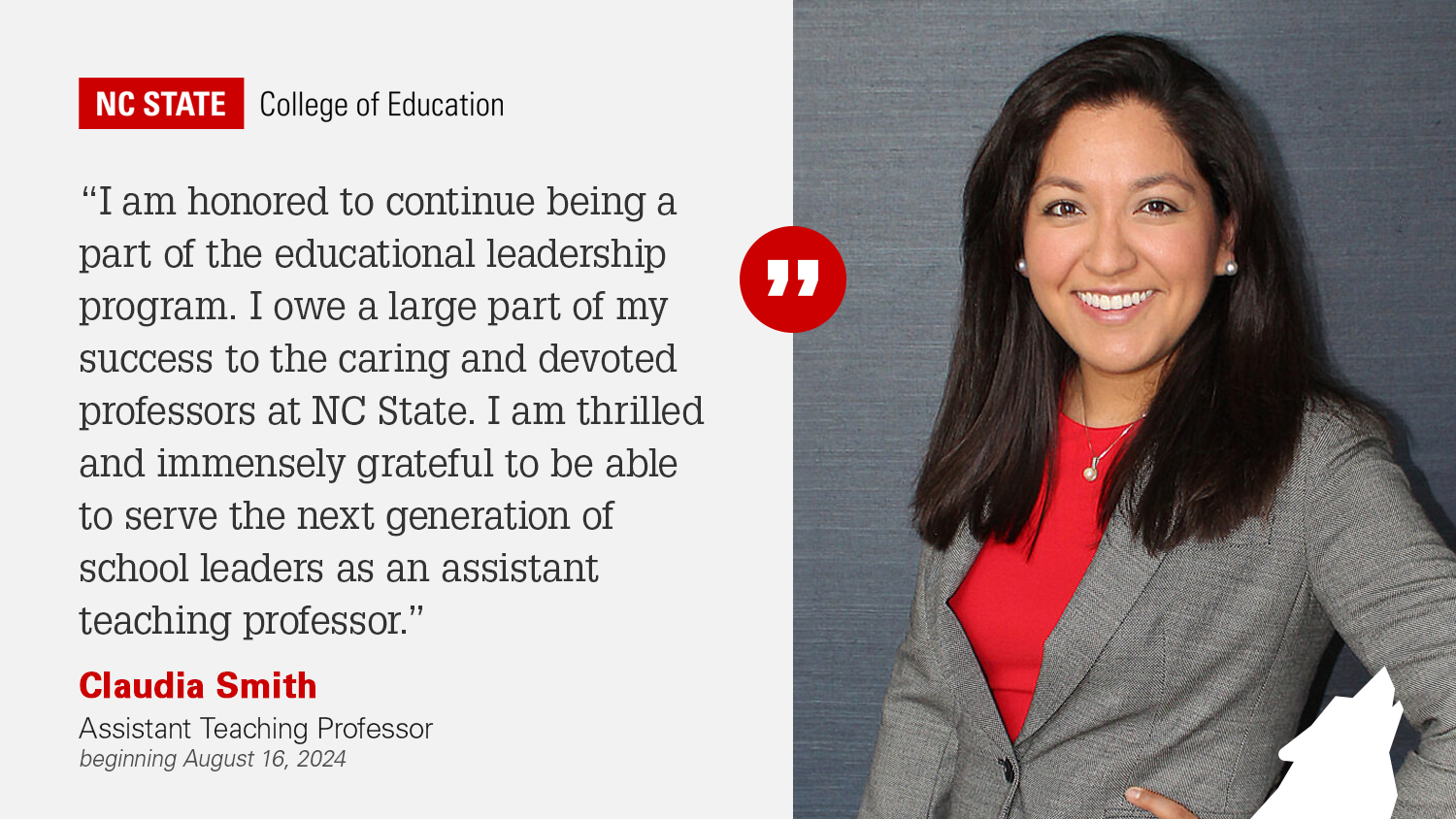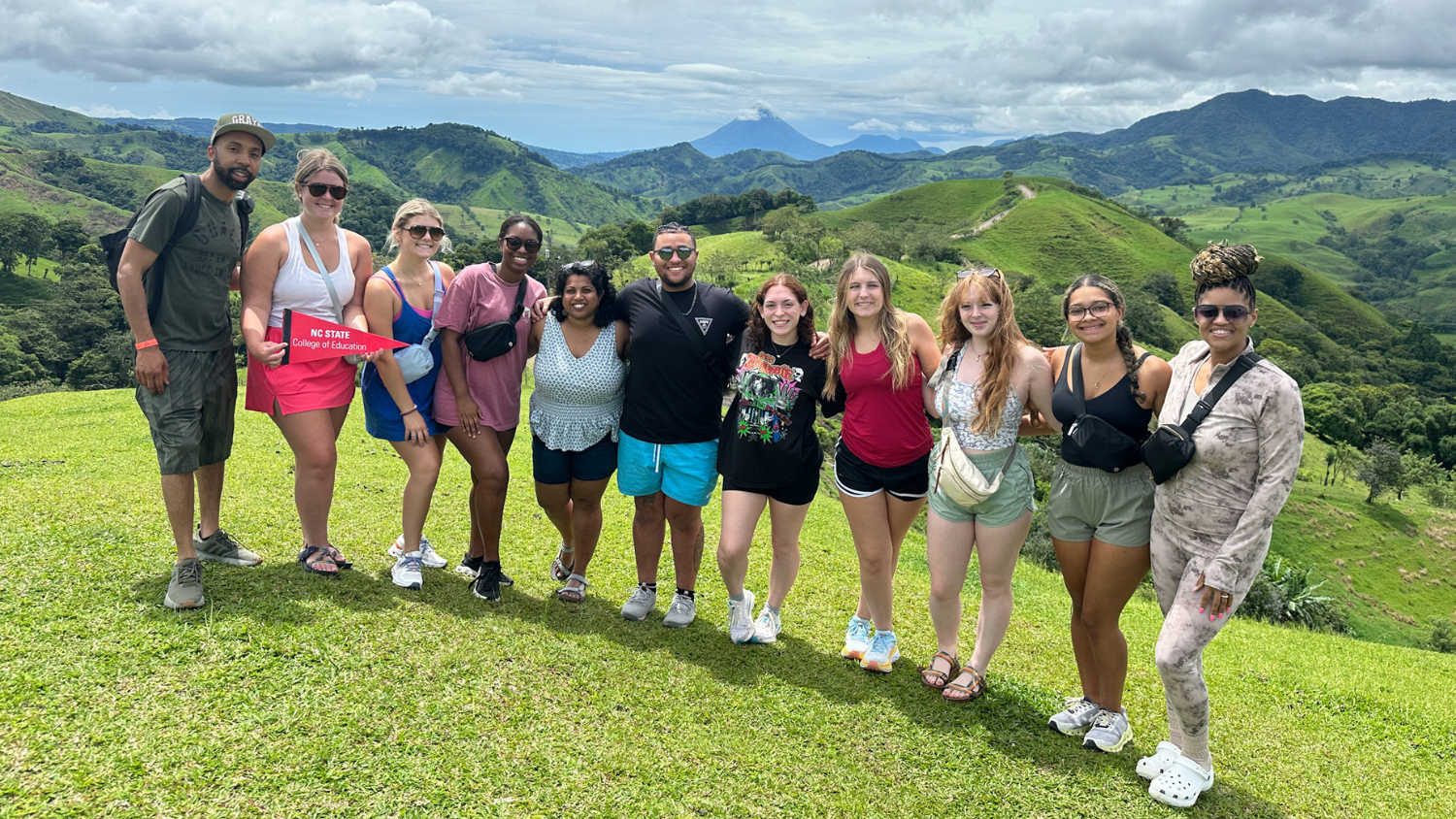NC State College of Education Celebrates Alumni, Doctoral Students who Serve as Counselors in Local Schools for American Education Week

For American Education Week, the NC State College of Education recognizes five doctoral students and alumni who serve as counselors in local schools and communities for their dedication and commitment to serving all students and providing them with access and support for success.
Meet these doctoral students and alumni, and hear what inspired them to pursue a counseling career and what equity in education means to them.
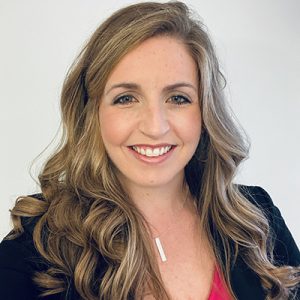
Amanda H. Allen ‘11MED, ‘15PHD
Counseling and Counselor Education
Educational Leadership, Policy, and Human Development
While completing her student teaching as an undergraduate student, Amanda H. Allen ‘11MED, ‘15PHD felt there were some students in her classroom who she didn’t have adequate time to get to know and weren’t able to break through barriers to their learning. This experience inspired her to pursue school counseling, where she could really get to know her students and help them.
Now, Allen works as an executive director of social and emotional learning (SEL) for Johnston County Public Schools, where she supports school counselors at the district level. In her role, she works with all the school counselors, social workers, nurses, student advocates and SEL interventionists within her school district.
She also serves as an adjunct professor in the counselor education program in the NC State College of Education.
What inspired you to enter the counseling profession?
I wanted to be a counselor many years before I thought this was a possible career path for myself. I always assumed I would have to go to school for too long or that I wouldn’t be smart enough for this work. I finally decided to follow this dream when I did my student teaching during my undergrad program. There were students I didn’t feel like I had adequate time to get to know to really break through barriers to their learning. I felt like the only way I could really accomplish this would be as a school counselor.
What did you enjoy most about being a school counselor?
My eight years as a school counselor brought me more joy than I ever could have imagined. My most joyous moments came when I was able to see positive change happening for students. The moments when I was able to help highly anxious children transition to their homerooms without tears in their eyes, the smiles I received in the hallways and the conversations with families about progress they’d seen…each of these moments and more made me the happiest in the world to be a school counselor!
What does equity in education mean to you and how does it show up in your current work (as a current or former school counselor)?
Equity means everything in education. Equity is what allows us to make learning relevant and accessible to ALL students. Without this, we are only reaching a portion of our students, but we still aren’t doing this portion of students the justice they deserve with the exclusion of teaching methods that reach others. As a former school counselor, I know that building relationships and connections is a foundational component of working with students, families and colleagues. This is required for equity as well. We must build relationships and make connections to really get to know one another and what is happening in each others’ lives. Even though I’m no longer working as a school counselor, the need to advocate for equitable resources and equitable access to school is more a part of my day-to-day role now than ever before with advocacy for LGBTQ+ youth, supporting accommodation plans for students with disabilities and facilitating professional development on implicit bias and its impact.
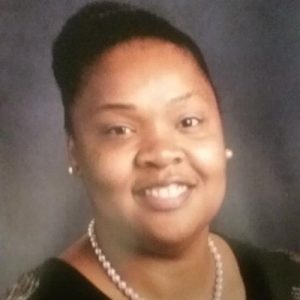
Cherice Artis ‘23PHD
Counseling and Counselor Education
Educational Leadership, Policy, and Human Development
Cherice Artis ‘23PHD, a school counselor at South Garner High School in the Wake County Public School System, wants to change the way marginalized students are served in schools.
What inspired you to enter the counseling profession?
I wanted to be an advocate for marginalized students. Often, these students are only served when they get into trouble. My goal is to consistently provide a comprehensive school counseling program filled with academic, social/emotional and career programs and initiatives designed to prepare all students to reach their post-secondary goals.
What do you enjoy most about being a school counselor?
I most enjoy helping first-generation students with college and college exploration.
What does equity in education mean to you and how does it show up in your current work (as a current or former school counselor)?
Equity in education means working to ensure that all students, regardless of their circumstances, have an equal opportunity for success. As student advocates, school counselors should serve as a resource to those students who need additional support by leveling the playing field. In academic counseling, that could mean facilitating a series of college applications, financial aid and scholarship workshops for first-generation college students. In social/emotional counseling, it could mean providing group counseling for students who are chronically suspended from school. In career counseling, it could mean hosting a career fair for female students, consisting of non-traditional careers for women. It could also mean serving on the School Improvement Team to ensure that as school-wide decisions are made, there is at least one voice to speak to the needs of disadvantaged students. School counselors have the power to help balance the scales so that all students have a fighting chance to achieve greatness.
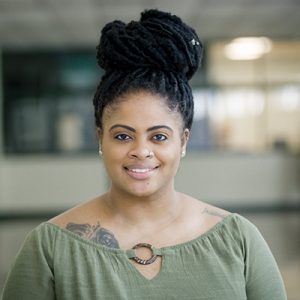
Tiara Griffis ‘15PHD
Educational Psychology
Educational Leadership, Policy, and Human Development
As a counselor in Johnston County Public Schools and a practicing clinician and therapist at Crowned Life Counseling Center, PLLC, Tiara Griffis ‘15PHD loves helping people chase their dreams, especially students. It’s one of the reasons she went into the counseling profession.
What inspired you to enter the counseling profession?
Wanting to help students with social-emotional wellbeing in schools.
What do you enjoy most about being a school counselor?
Building meaningful and long lasting relationships — I was a high school counselor for most of my experience although I am now in middle school, but I enjoy helping students chase their dreams.
What does equity in education mean to you and how does it show up in your current work (as a current or former school counselor)?
It means being able to offer and provide resources and opportunities for all students and it shows up in my work because I am an avid advocate for students to be granted opportunities, especially to those who are underserved.
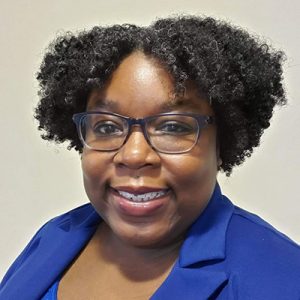
Yolanda S. Jarrett ‘25PHD
Counseling and Counselor Education
Educational Leadership, Policy, and Human Development
While in high school, Yolanda Jarrett ‘25PHD had some negative experiences with her school counselor. Now, as a school counselor for the Wake County Public School System, she wants to ensure that other students don’t have the same experiences she had.
What inspired you to enter the counseling profession?
I wanted to help people, to show students options and support students so they didn’t have the negative experiences I had with my high school counselor, and to help students find and become their best selves
What do you enjoy most about being a school counselor?
I love watching students find themselves; their strengths, their areas of academic and social/emotional growth, and the progress they have made in defining who they are, what they believe and how they want to live. It is a joy to see students gain strength in the process of building their identity. It’s the process that matters because identity changes based on life’s journey. I especially love the fact that even when I personally don’t have the same beliefs as my students, I can still be a part of them embracing their own beliefs and culture.
What does equity in education mean to you and how does it show up in your current work (as a current or former school counselor)?
Equity means recognizing and disrupting systemic barriers for all students and building new programs and mindsets that provide access to new opportunities, allowing students the chance to identify and strengthen the assets they have gained through resilience in adversity and that inherently exist in their personality and skill sets. Basically, equity in education is meeting students where they are, identifying what they need to get where they want to go, encouraging them along the journey to get there and removing the barriers for them to actually get there through advocacy. No matter how much we build our students up, if we don’t change the systems in which they exist and create opportunities for them to flourish, we will never reach true equity.
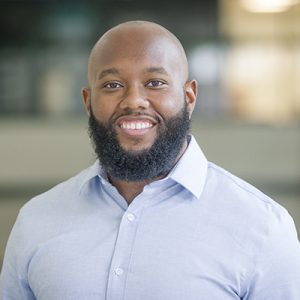
Felix Morton IV ‘23PHD
Counseling and Counselor Education
Educational Leadership, Policy, and Human Development
Throughout his entire K-12 and undergraduate education, Felix Morton IV ‘23PHD never encountered a Black male teacher or counselor. As a school counselor at East Chapel Hill High School, he wants to change that for his Black students.
What inspired you to enter the counseling profession?
Throughout my entire K-12 and undergraduate education, I had never encountered a Black male teacher nor counselor. After spending some time as a classroom teacher, I felt that counseling would allow me to connect with my students in different ways that are limited by the classroom setting. I also wanted to be for my Black male students what I never saw — a Black male teacher and counselor.
What do you enjoy most about being a school counselor?
The students!
What does equity in education mean to you and how does it show up in your current work (as a current or former school counselor)?
To me, equity in education means leveling the playing field for all students, especially those from underserved populations, and not just in the classroom but also in support services. Equitable services in education show up in my current work through my ongoing advocacy for an increase in counselors of color in education, as well as more education and professional development around cultural awareness and sensitivity in the workplace.
- Categories:
